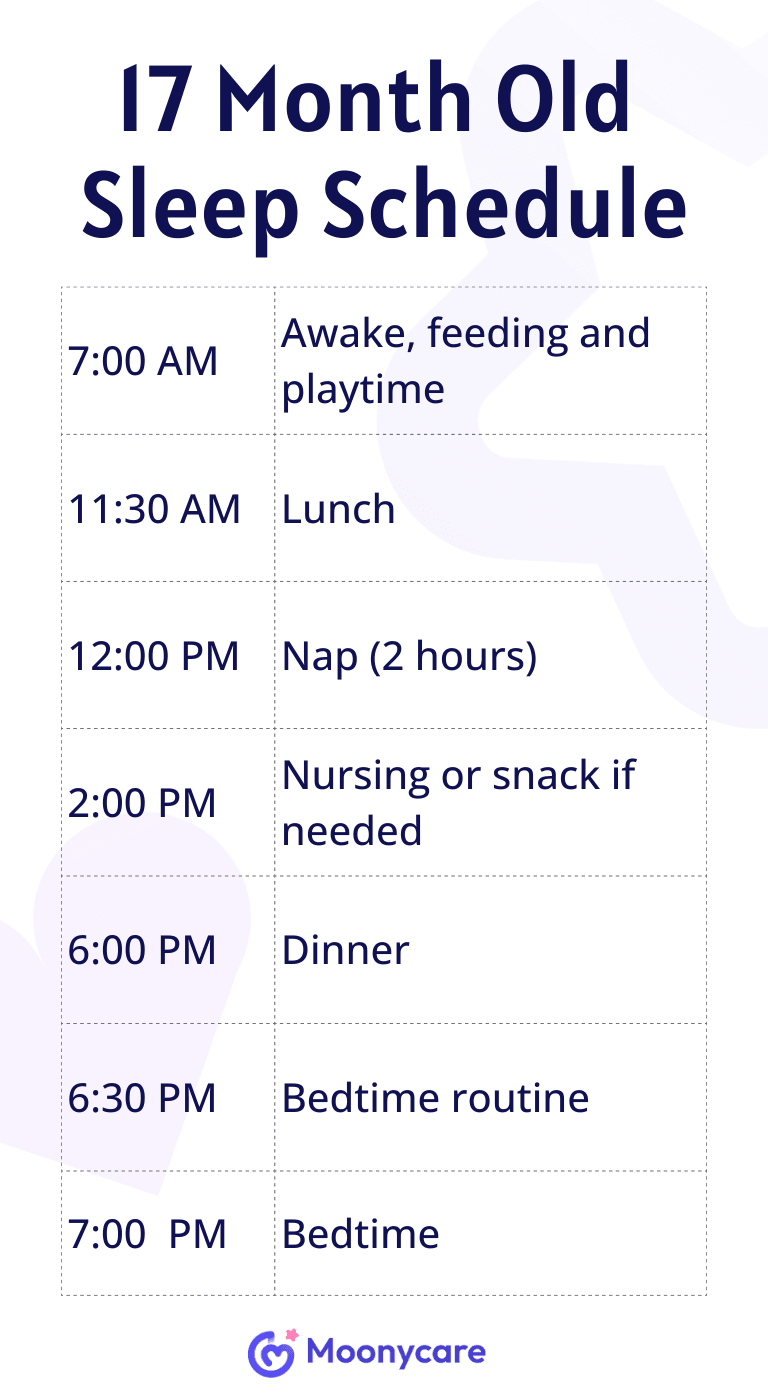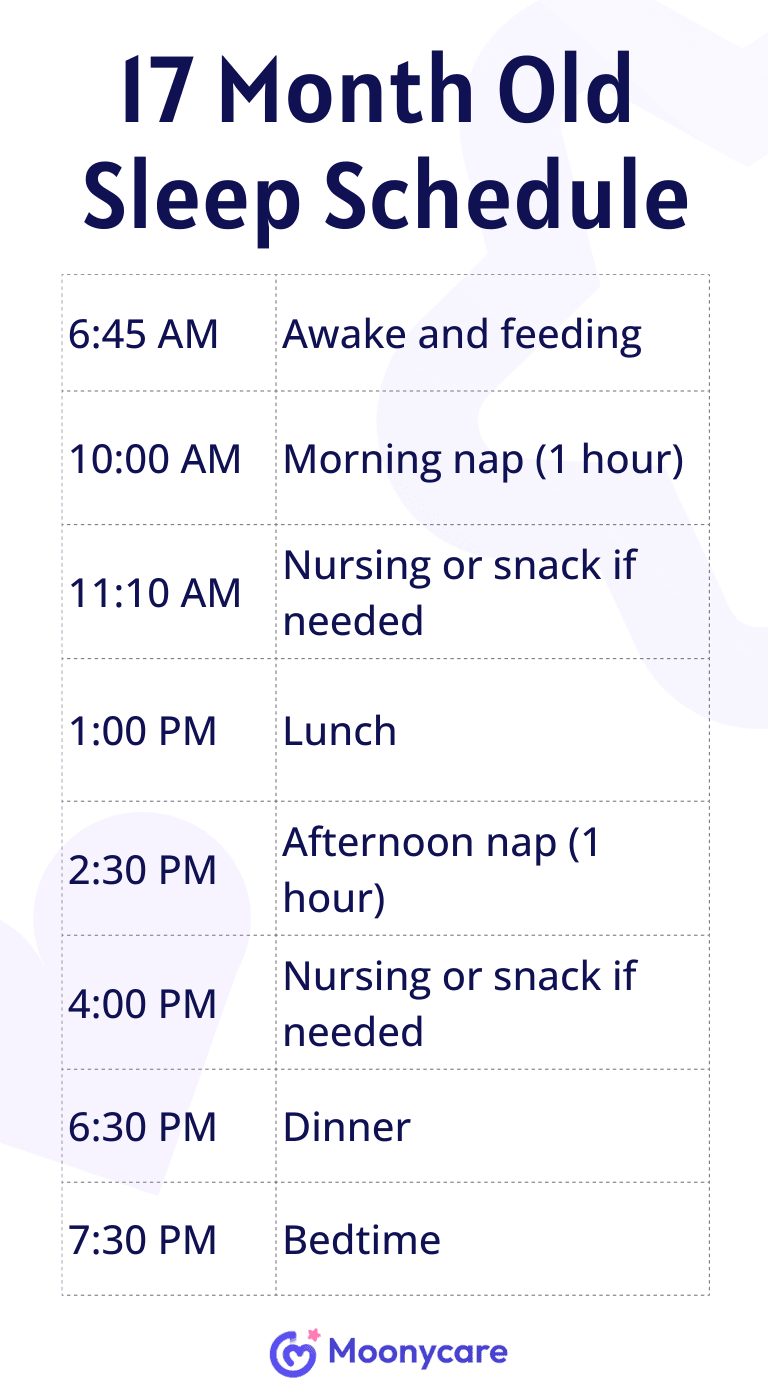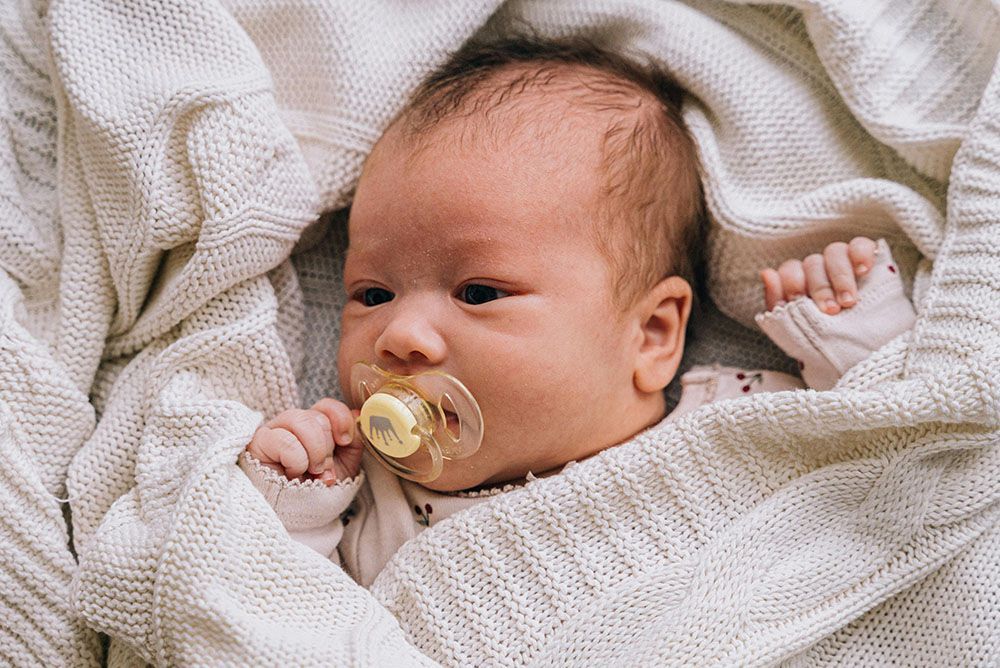

Establishing a consistent sleep schedule for your 17-month-old is crucial for their development and overall well-being. At this age, toddlers experience a variety of physical and cognitive milestones, which can significantly influence their sleep patterns. Here's a detailed guide to creating and maintaining a sleep schedule for your 17-month-old, taking into account their unique needs and challenges.
IN THIS ARTICLE:
What are Wake Windows for a 17 Month Old?
A Sample Sleep Schedule for 17 Month Old Babies
How Much Should a 17 Month Old Sleep?
How Long Should a 17 Month Old Nap?
How Many Naps are Suitable for a 17 Month Old?
What Time Should a 17-Month-Old Go to Bed?
Why Does my 17-Month-Old Keep Waking Up at Night?
Can a 17-Month-Old Sleep with a Pillow?
Is there Sleep Regression for 17 Month Old Babies?
What are Wake Windows for a 17-Month-Old?
At 17 months, most toddlers are transitioning to a single nap per day, but some still benefit from two naps. This difference affects their wake windows, which need to be adjusted accordingly. Balancing these wake windows effectively can promote better nap times and ensure a smoother bedtime routine.
Wake Windows for One Nap:
For toddlers taking just one nap, the wake windows are generally longer to accommodate the shift, about 4-6 hours:
-
Morning Wake Window: 5-6 hours after waking from the long nighttime sleep
-
Afternoon Wake Window: 4-5 hours after ending the nap
Wake Windows for Two Naps:
For those still needing two naps, the wake windows are shorter, usually appropriate 3-4 hours:
-
First Wake Window: 3-5 hours after waking up in the morning
-
Second Wake Window: 3-5 hours after ending the first nap
Sample 17-Month-Old Sleep Schedule
Crafting a sleep schedule that aligns with your toddler's natural rhythms is essential. For clarity, here's how the daily schedule may vary depending on whether your toddler takes one or two naps.
One Nap Schedule:

Two Naps Schedule:

This schedule ensures your little one gets adequate sleep while also allowing enough time for meals, play, and learning activities. You can choose one based on the number of nap that your baby currently takes. If your baby's routine is completely different but works well with their own schedule, there's no need to make adjustments, and simply keep the routine that fits your baby best.
How Much Should a 17-Month-Old Sleep?
On average, a 17-month-old needs about 12 to 14 hours of sleep in a 24-hour period, usually containing 10 to 12 hours of nighttime sleep. While each child is different, ensuring they get enough sleep is essential for their growth, development, and mood regulation.
How Long Should a 17-Month-Old Nap?
A typical nap for a 17-month-old should last around 2 to 3 hours. This duration helps ensure they are well-rested without disrupting nighttime sleep. A consistent nap schedule allows your toddler to recharge effectively, preventing overtiredness and crankiness. The key is to strike a balance where the nap is long enough to rejuvenate your child but not so lengthy that it interferes with bedtime.
Maintaining a predictable nap routine is crucial during this developmental stage as it supports overall sleep quality and stability. As your toddler grows, their sleep needs might change. If you observe your child experiencing difficulties in falling asleep at night or waking up frequently, indicating that the nap length, timing or even the number of naps might need to be adjusted.
How Many Naps are Expected for a 17-Month-Old?
By 17 months, most toddlers are down to one nap per day. This nap usually occurs in the early afternoon and lasts 2 to 3 hours. The transition from two naps to one is usually completed by this age, although some toddlers may still occasionally take two shorter naps, especially if they're going through a growth spurt or are particularly active. If your baby is still taking 2 naps a day, make sure each nap doesn't exceed than 1 hour.
What Time Should a 17-Month-Old Go to Bed?
For a 17-month-old, establishing a consistent bedtime routine is essential for promoting healthy sleep habits. Typically, bedtime should be around 7:00 to 8:00 PM, which is related to your child's wake-up time and nap schedule. This timeframe allows for a full night's sleep, which is crucial for their development. Before bedtime, you can also set a routine to indicate the baby that needs to sleep.
Why Does my 17-Month-Old Keep Waking Up at Night?
At this time, many babies are able to sleep over night without waking up. However, there still are some factors that can lead to wake up at night, like:
Teething: Emerging teeth can cause discomfort that disrupts sleep, because the emergence of molars can be painful.
Separation Anxiety: At this age, toddlers may experience separation anxiety, which can lead to baby to wake up for finding comfort from a caregiver.
Overtiredness: If your toddler isn't getting enough sleep during the day or is staying up too late, they may wake up more often at night.
Hunger: Ensure your toddler is eating enough during the day, especially before bedtime, to avoid night wakings due to hunger.
To handle these, make sure you have a consistent bedtime routine that provides comfort and predictability. Offer reassurance without relying on things like rocking or feeding to help your baby fall asleep. This approach helps your baby learn to soothe themselves and go back to sleep on their own. Over time, as your baby adjusts to these changes, the number of night wakings should decrease.
Can a 17-Month-Old Sleep with a Pillow?
While it might be tempting to introduce a pillow at this age, it's generally recommended to wait until your toddler is at least 2 years old. Even then, the pillow should be small, firm, and designed specifically for toddlers to reduce the risk of suffocation and ensure their safety during sleep.
Sleep Regression of a 17-Month-Old
At 17 months, sleep regression can occur, disrupting a previously stable sleep pattern. This regression is often linked to developmental milestones, such as increased mobility, language acquisition, or a growing sense of independence. And changes in sleep patterns, strange environmental factors, individual's cognitive development and health issues can also lead to sleep regression.
These changes can make it difficult for your child to settle down, leading to more frequent night wakings, early wake-ups in the morning resistance to naps or hard to fall asleep. To navigate this phase, maintaining a consistent bedtime routine and offering comfort without creating new sleep associations is crucial. Patience is key, as this phase typically passes with time.
17-Month-Old Sleep Tips
To help your 17-month-old achieve better sleep, consider these tips:
-
Consistent Routine: A predictable routine with calming activities before bed, such as reading or a bath, helps signal to your toddler that it's time to sleep.
-
Comfortable Sleep Environment: Ensure your child's sleep environment is conducive to rest, with a dark room, a comfortable temperature, and minimal noise.
-
Physical Activity: Encourage plenty of physical activity during the day. This helps your toddler expend energy and makes it easier for them to settle down at nap time and bedtime.
-
Healthy Diet: A balanced diet can impact sleep quality. Ensure your toddler is eating well-balanced meals and snacks throughout the day to avoid hunger-related wake-ups.





